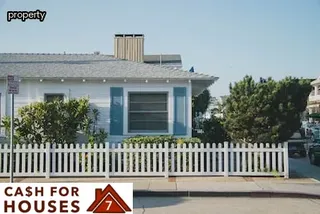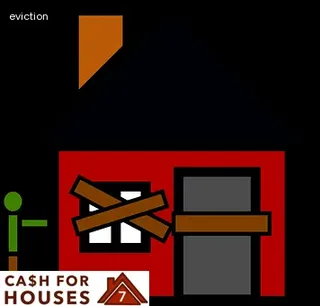Squatting is a term used to describe the act of occupying an abandoned or unoccupied space, usually real estate, without permission from the owner. It is often done as a means to gain living space or shelter for the individual(s) squatting.
Squatting can be considered illegal in some cases, depending on local laws and regulations; however, in Massachusetts there are certain rights that protect squatters. The state recognizes that, if someone has been living on a property for an extended period of time and have made improvements, they can establish legal possession of the property through a process known as "adverse possession.
" This process requires that all legal requirements be met such as paying taxes on the property, maintaining it continuously over an established period of time and notifying the owner of their intent to claim ownership. As long as these requirements are met and other conditions are satisfied, then a squatter may have certain rights to occupy and possess the property.

Adverse Possession in Massachusetts is a legal term used to describe the process of gaining ownership of another person's real estate through occupying or possessing the land for a certain period of time. This type of possession falls under the state's real estate laws, which can vary from one jurisdiction to another.
In Massachusetts, an individual must possess the property continuously for at least 20 years before being able to acquire title. During this time, they must also pay taxes on the land and make improvements to it, such as building structures or adding landscaping.
Additionally, they must have exclusive use of the property and not share it with anyone else. They also have to be open and notorious about their possession; if someone notices them using the property but does not take any action against them, that can constitute adequate notice of adverse possession.
Finally, in order for an individual to gain title through adverse possession in Massachusetts, their possession must be hostile or without permission from the rightful owner; if it is not hostile, then no claim of title will be allowed. Understanding these rules is essential for anyone considering taking up adverse possession in Massachusetts.
Color of Title claims are a type of real estate possession law that applies in Massachusetts. This claim gives the claimant legal title to a piece of property, even if they can’t prove their ownership with a deed or other document.
To understand this law and how it applies to squatters, it’s important to look at the elements necessary for a successful color of title claim. These include the length and nature of occupancy, whether the occupant has made improvements on the land and paid taxes on it, and whether they have actively repudiated any other claim to ownership.
If all these elements are present, then the squatter can make a color of title claim as long as they can prove they have been occupying the property in question for more than twenty years. In order for the squatter to protect their rights in court, they must be able to provide evidence that supports their claim such as payment records, bills of sale or leases, and other documents that demonstrate that they are recognized by local authorities as having an interest in the property.
Although these claims may be difficult to prove in court due to lack of evidence or witnesses, understanding color of title claims is essential for those who wish to assert their rights as squatters in Massachusetts.

Preventing squatters from invading your property can be a challenging task in Massachusetts, which is why it is important to understand your rights as a homeowner. With the recent increase in homelessness and people looking for available living space, property owners should be aware of the legal implications of having someone stay on their property without permission.
Knowing your legal rights can help you take the necessary steps to protect your real estate possession laws. One way to do this is to avoid leaving your property vacant for extended periods of time; if you are away, make sure that someone else is visiting regularly or that there are security measures in place.
Additionally, you should always ensure that all entryways are securely locked and that no one has access to your property without permission. Finally, make sure to clearly post signs stating “No Trespassing” on any entryway or fence surrounding the premises; this will help alert potential trespassers of the legal consequences for entering without permission.
Taking these steps will help ensure that you can keep unwanted squatters away from invading your Massachusetts property.
It is important for any Massachusetts resident to have adequate home and car insurance, especially if you are a squatter. Having the right coverage can provide financial protection in the event of a disaster or other unpredictable event.
It is essential to shop around to find an affordable policy in order to make sure you are adequately covered without breaking the bank. There are many different companies that offer competitive rates in Massachusetts, so it is important to do your research and compare quotes from several providers before making a decision.
Utilize online resources as well as local agencies and brokers to get an accurate assessment of what kind of coverage you need and how much it will cost. Once you have found the right policy for your needs, be sure to read through all of the terms and conditions carefully before signing any contracts or making payments, as this will help ensure that you understand all aspects of your coverage and protect yourself against potential disputes down the road.

When it comes to understanding squatter's rights in Massachusetts, personal liability insurance is an important component to consider. It is always wise to speak with a qualified real estate attorney to make sure that one's rights are fully protected and that any potential risks are taken into consideration.
Personal liability insurance can help protect against any costs associated with property damage or injury if the squatter's actions result in a legal dispute. Additionally, it can provide coverage for legal defense fees as well as any damages awarded in case of a lawsuit.
This type of insurance can be especially beneficial if the squatting situation involves multiple people who are jointly occupying the same property. It is important to understand that this type of insurance does not replace local laws or regulations, but rather serves as additional protection against unforeseen circumstances or liabilities.
As such, researching applicable laws on possession and land use before entering into a squatter’s agreement is essential for protecting oneself from future liability issues down the road.
In Massachusetts, there are specific laws in place regarding real estate possession that anyone dealing with squatters needs to understand. Squatters may have certain rights if they have been living on the property for a certain amount of time, so knowing the right rules is essential.
The Adverse Possession law in Massachusetts states that after 20 years of continuous and open occupancy of a piece of property, the squatter has the right to claim it as their own. This law also applies if the squatter pays taxes on the property for at least 20 years.
Additionally, the occupants must be using it openly, as if it were their own, without permission from or even knowledge of the actual owner. To ensure that squatters do not attempt to take advantage of this law, Massachusetts also requires them to make “substantial improvements” to the land within 10 years in order to gain legal title over it.
Finally, when dealing with a squatter situation in Massachusetts, landlords need to take note that any improvements made by a tenant without their permission will remain with them even after eviction.

Many court cases have been heard in Massachusetts regarding laws of possession, which can be relevant to squatting. In one case, a tenant was found to have "squatted" in an apartment for over four years without paying rent, and the court determined that the tenant had no right to remain in the apartment despite living there for such a long time.
In addition, another case involving a landlord and tenant dispute found that a landlord cannot remove a squatter on their own but must bring legal action against them. This is because tenants who occupy property without the owner's consent are considered trespassers and therefore not protected by regular tenancy laws.
Furthermore, certain legal protections exist for individuals who are squatting on public land or land owned by the government; however, these cases are usually handled at the local level and may be subject to different rules than those applied to private land owners.
If you’re looking for more information about squatting in Massachusetts, there are a number of online resources that can provide additional details. These websites can help you to understand the legal implications of being a squatter and what your rights are when it comes to owning or occupying land.
You can find information on property law, tenant rights, eviction notices, and other relevant topics related to real estate possession laws in MA. Additionally, these websites offer support services to assist with squatting-related issues such as advice on how to file for ownership or occupancy of land.
In some cases, they may even have attorneys available to answer any questions you have about your rights as a squatter in Massachusetts. With all the available online resources, understanding your squatters' rights in MA has never been easier.

For those looking to explore the topic of Squatters’ Rights in Massachusetts further, there are plenty of print resources available. The book “Real Property Law in Massachusetts” by John J.
Costonis is a great place to start, as it provides an in-depth look at the laws related to possession and ownership of real estate property. Additionally, those interested may find “Massachusetts Real Estate Law and Practice” by William G.
Morrissey useful, as it offers advice on how to handle disputes related to real estate law. For individuals looking for case studies related to Squatters’ Rights, “Real Estate Litigation in Massachusetts” by Terrence W.
Kennedy is an excellent source that provides insight into legal battles over vacant properties. Finally, the book “Massachusetts Landlord-Tenant Law: A Guide for Practitioners and Policymakers" by Stephen D.
Sugarman offers a comprehensive overview of landlord-tenant rights and obligations under state law.
If you are a Massachusetts resident and you have squatters living in your property, it is important to know how to protect your legal rights. One way of doing this is by contacting state agencies for assistance.
Massachusetts has various agencies that can provide support with regards to real estate possession laws. These include the local police department, housing authority, Attorney General's office, and Department of Revenue.
It is wise to contact these agencies if you feel like your rights as a property owner may be threatened by squatters or other individuals occupying your property without permission. The police department can help investigate any illegal activities occurring on the premises while the housing authority can provide assistance with tenant-landlord disputes.
Meanwhile, the Attorney General's office and Department of Revenue may be able to provide assistance with understanding relevant state laws and regulations concerning real estate possession. By contacting these agencies for help, Massachusetts residents can gain a better understanding of their legal rights as well as how to protect them from squatters on their property.
In Massachusetts, it is possible to remove a squatter from your property, but the process can be complicated and time-consuming. The first step is to understand your rights as a property owner under Massachusetts law.
Squatters have the right to remain on your property until they are formally evicted by a court order, so it is important that you follow all legal procedures when attempting to remove them. You must serve notice to the squatter via certified mail or in person, informing them of their need to vacate the premises within a certain amount of time.
If they fail to comply with this notice, you may file an eviction lawsuit with the local court system and request that the judge issue an order of eviction. It's important to note that any changes you make to the property while the squatter remains on it may not be legally binding unless they agree in writing before making any changes.
With this information in mind, it is clear why understanding your rights and following legal procedures are essential for properly removing a squatter from your property in Massachusetts.

Under Massachusetts law, the shortest period of time for squatters rights is six months. Squatters rights are also known as adverse possession and refer to a person's right to obtain legal title to land in which they have lived on for a certain amount of time.
In Massachusetts, this amount of time is six months; however, other states may require longer periods of possession before ownership is granted. When it comes to real estate possession laws in the state, understanding your squatters' rights is important in order to protect yourself from potential legal disputes or the potential loss of property.
To meet the requirements for squatters rights in Massachusetts, one must be in exclusive possession and control of the land for a period of at least six months. Additionally, squatters must pay all taxes and fees associated with the property during this period and have an intent to claim legal ownership over it.
Once these criteria are met, you can file a claim for squatters' rights under Massachusetts law.
Yes, adverse possession is allowed in Massachusetts. The law requires that a squatter must occupy the property for a period of 20 years before they can gain legal title.
This is known as a "statutory period." In order to qualify for the statutory period, the squatter must demonstrate that they have been living on and using the property continuously and openly during this time.
They must also pay any taxes associated with the property, such as real estate taxes or water bills. The squatter must also show that they have exclusive possession of the property and that they are not sharing it with anyone else.
This means that no one else may be living in or using the property during this time. If all these conditions are met, then the squatter may apply to register their ownership with the appropriate government agency in Massachusetts.
No, New Hampshire does not have squatters rights. Squatters' rights, or adverse possession laws, are specific to individual states, and New Hampshire does not recognize them.
In Massachusetts specifically, the state has passed statutes that allow individuals to take ownership of a piece of property if they possess it for 20 years or more and meet various other criteria. This means that in order to understand your squatters' rights in Massachusetts, you must familiarize yourself with the relevant real estate laws and statutes in the state.
If you are considering taking advantage of these laws it is important to speak with an experienced attorney who can advise you on the requirements and limitations of squatters' rights in Massachusetts.